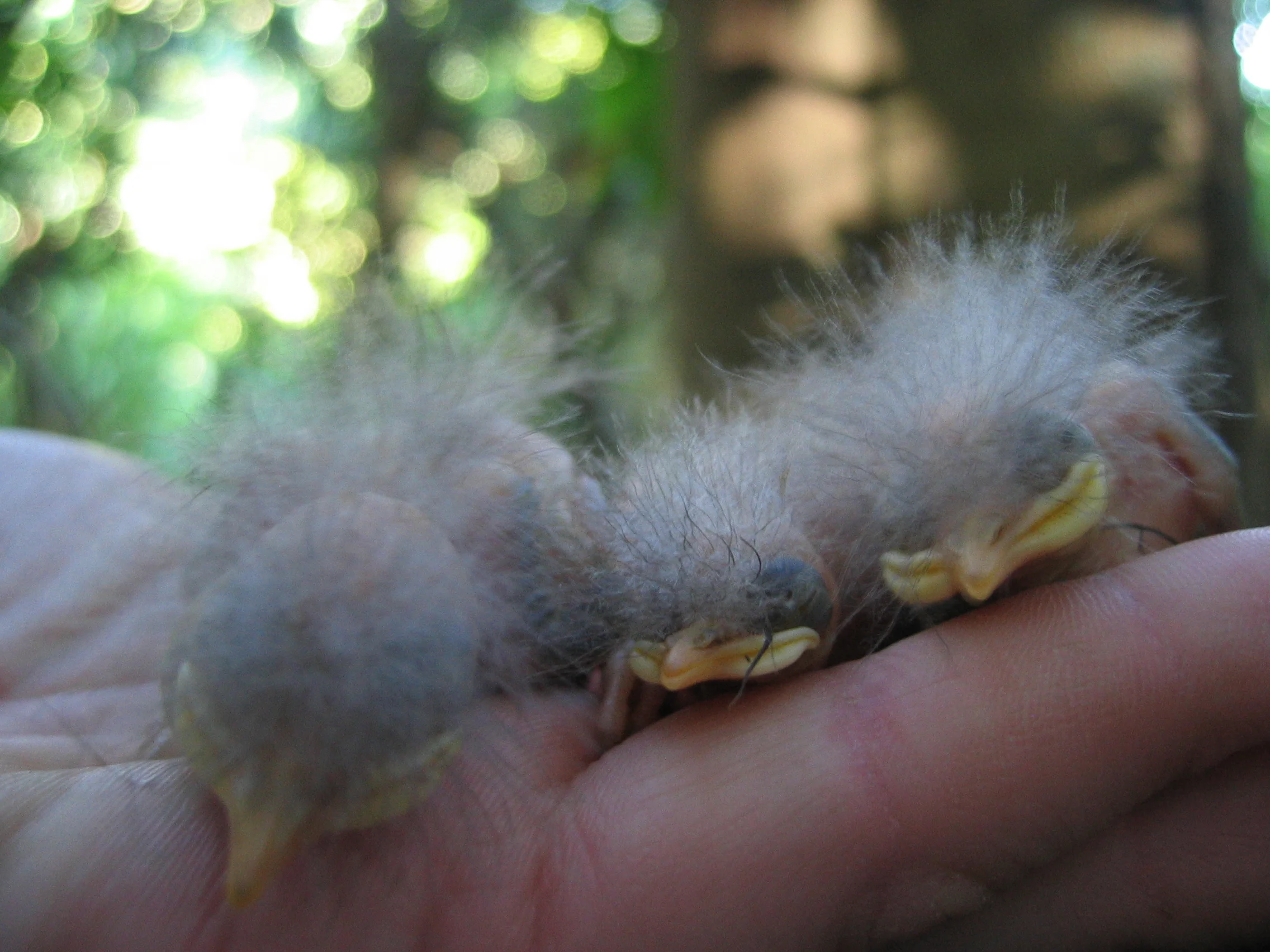The Great Hihi Sperm Race is on!
Take part in possibly the world's first Sperm Race and help raise funds for conservation of New Zealand's best bird (in my completely partial opinion!)
One of our main study species is the Hihi, a threatened passerine bird from New Zealand.
Hihi are extremely conservation reliant. They need supplementary feeding, nest boxes and other forms of intensive management at most sites and this makes them an expensive bird to protect. Yet they are a "canary" of New Zealand forest health - hihi need healthy complex forests to survive, and research by our group (led by Caitlin Andrews) is showing that healthy forests also need hihi (via pollination of threatened plants). Hihi have complex social relationships and we are also demonstrating that the social environment of hihi is an intricate part of their ability to find new food sources (led by Victoria Franks). Meanwhile, breeding success is critical for hihi populations, but research has shown that many males are "firing blanks", leaving eggs infertile.
To help raise money for on-the-ground conservation, a collaborator from the New Zealand Hihi Recovery Group (Dr Helen Taylor, University of Otago, New Zealand) has therefore set up The Great Hihi Sperm Race. Visit www.hihispermrace.co.nz, click on your favourite male, and place a (bet)donation. Meanwhile, Helen and her team will be analysing hihi sperm samples with the help of a mobile sperm lab, a microscope and a video camera to find which male's sperm swims the fastest!
Hihi sperm x400 Image Credit Helen Taylor
It’s a light-hearted way of raising awareness and much needed conservation funding for a beautiful yellow and black bird that was widespread throughout the North Island until humans arrived, bringing mammals such as rats, destroying hihi habitats, and reducing numbers down to just one population by the 1880s.
Hihi numbers are higher now, thanks to conservation efforts, but there are still only seven populations in the whole country. It’s not known how many individuals there are, and the future of the sugar-loving bird is still threatened thanks to its reliance on complex mature forest habitats, few of which exist in New Zealand at this point.
Please help us raise money and better protect hihi for the future - Betting is open until midnight on Sunday 22nd April NZ time.
Gentleman hihi, start your...er...engines!
For more information, contact: Helen Taylor, Department of Anatomy, University of Otago, New Zealand.
Do mothers bias offspring sex ratios in carotenoid-rich environments?
2nd hihi paper for 2016 out @ Behavioral Ecology!
2nd hihi paper for 2016 out @ Behavioral Ecology!
Kirsty J. MacLeod, Patricia Brekke, Wenfei Tong, John G. Ewen, Rose Thorogood
Behavioral Ecology (2016) 28 (1): 131-137.
Here we've proved that non-significant results can be published! As part of a wider supplementation experiment investigating the effects of carotenoids (a dietary biochemical responsible for birds' pigmentation and implicated in their immune systems) on hihi, we determined the sex of as many eggs laid as possible. By following these nests closely in the field, (including hunting tirelessly for dead nestlings thrown from the nest by tidy parents!) we managed to collect a dataset to test whether mothers invest more in sons when these are likely to become sexier adults relative to daughters. There is some evidence that hihi males with greater access to carotenoids when young achieve greater reproductive success in adulthood (see nice work by Leila Walker during her PhD here and here). Therefore, we surmised that mothers better able to provision sons with carotenoids might invest in producing more of them to improve their fitness. Data from two field seasons however failed to find any evidence for this, and provides more evidence that sex-ratio manipulation by mothers is difficult to detect.
Read more about this paper, and Kirsty's companion paper on how mothers manipulate hatching asynchrony, in this nice blog post on her site.
Kirsty's first hihi paper accepted in Animal Behaviour!
Great work Kirsty - her first hihi paper has just been accepted for publication in Animal Behaviour.
Kirsty took advantage of data collected in the field over ten years ago, and combined this with our long-term breeding records for the Tiritiri Matangi population. Some hihi can live for around 10 years so this was perfectly timed!
Good luck for the field season on #Tiritirimatangi @VixFranks
Victoria is on her way to New Zealand for her second field season. She'll be based at Tiritiri Matangi Island until April 2016, and manipulating the ways that juveniles learn about their environment. If you're visiting New Zealand, make sure you include a trip to Tiritiri to visit Vix and our hihi!


